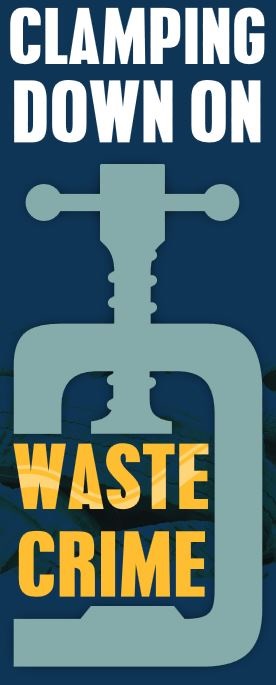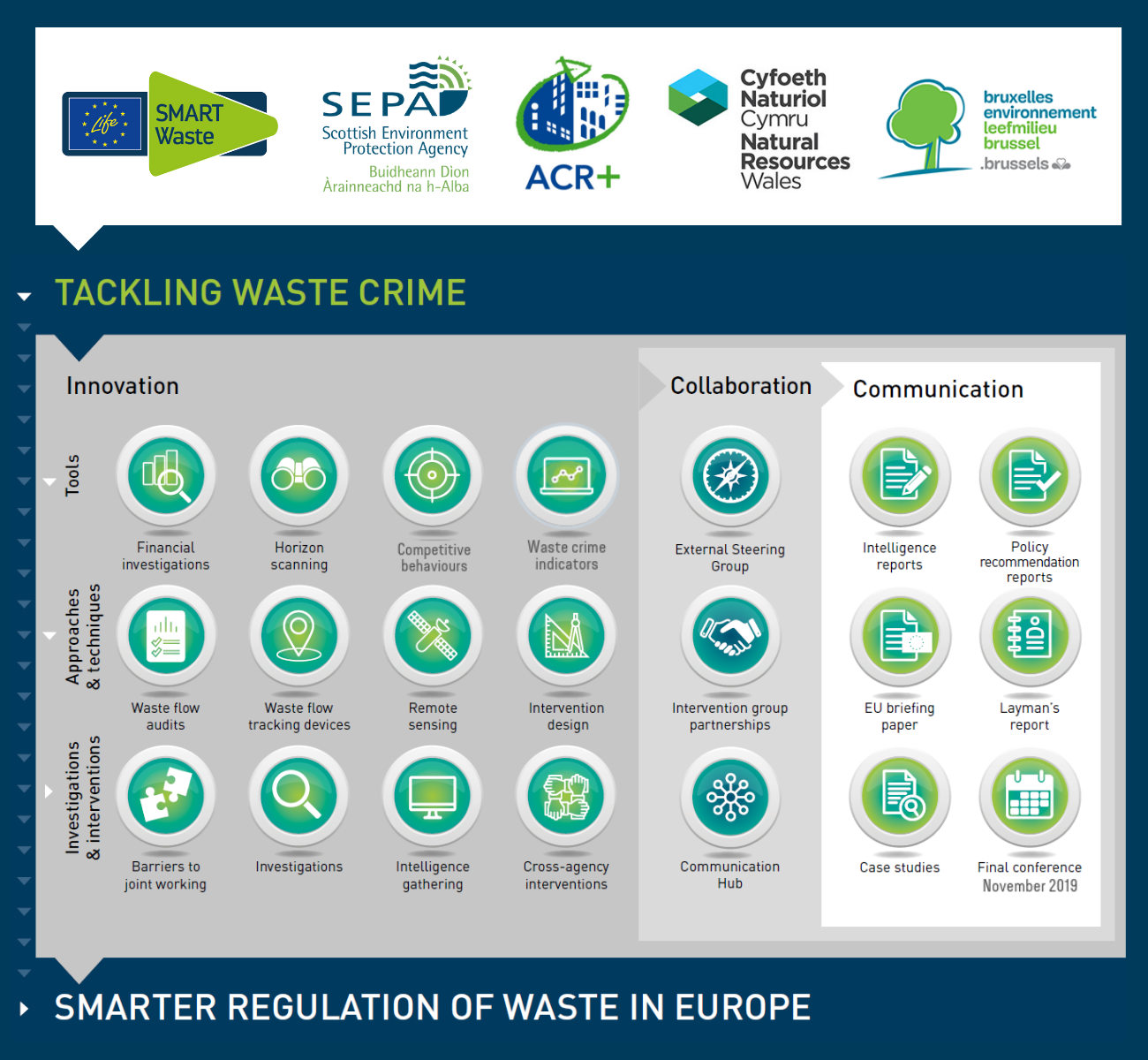Presentation
The LIFE SMART Waste project – Smarter Regulation of Waste in Europe – set an innovative pan-European partnership between key bodies involved with addressing waste crime.
The project was funded under the LIFE+ programme and it runs from June 2014 until May 2020.
The goal of the LIFE SMART Waste project was to demonstrate innovative ways of understanding, tackling and reducing waste-related crime.

Activities
LIFE SMART Waste:
- Developed innovative intelligence gathering and analytical approaches to identify and understand significant waste crime issues (current and future) associated with “challenging” waste streams, problem waste operators and illegal waste activities;
- Targeted the environmental, social and economic problems created by waste crime;
- Analysed and reported on the difficulties that enforcement agencies face in identifying, understanding and tackling waste crime;
- Developed new and innovative ways of working to ultimately reduce the impact of waste crime in European states.

A Layman's report, suitable for both technical and non-technical audiences, summarises the work, results and recommendations of the LIFE SMART Waste project.
A COLLABORATIVE APPROACH AT WORK
The project developed, tested and applied new and modern ways of working, and demonstrated direct interventions to assess and target illegality in waste streams. The innovative aspect lied in the “collaborative approach”, where environmental bodies set intelligence and investigatory objectives using common tools around shared areas of concern, then together identify and tackle illegality.
For certain interventions, collaborations involved non-environmental bodies, such as the police, customs or financial authorities.
RECOMMENDATIONS
The project’s findings led to a number of recommendations that could assist EU Member States and UK administrations with efforts to address and reduce waste crime. Key themes for the project’s recommendations are: Mandatory electronic waste tracking; Consistent waste carrier registration requirements; and Consolidation of enforcement best practice.
A brochure summarises the recommendations, together with the project’s objectives and outputs.
The detailed recommendations are gathered in three reports providing context and justifications for the project’s recommendations at EU, national (UK) and local (Scotland) levels.
REPORT ON GLOBAL PLASTIC WASTE
INTERPOL published an open-source strategic analysis report on global plastic waste management that highlights an alarming increase in illegal plastic pollution trade across the world since 2018.
Funded by the LIFE SMART Waste project, the report indicates that there has been a considerable increase over the past two years in illegal waste shipments, primarily rerouted to South-East Asia via multiple transit countries to camouflage the origin of the waste shipment.
RESOURCES
The LIFE SMART Waste's capacity-building resources can be used to help predict emerging criminality in waste markets, detect problematic waste operators and enable more effective collaboration to address waste crime.
The project’s work is explained also through videos, available here. A video of the final conference is also available.
Partners
The coordinator of this project was the Scottish Environment Protection Agency. It also included the following partners:
- ACR+, Association of Cities and Regions for Sustainable Resource Management (BE)
- Brussels Environment* (BE)
- Natural Resources Wales (UK)
* ACR+ member




